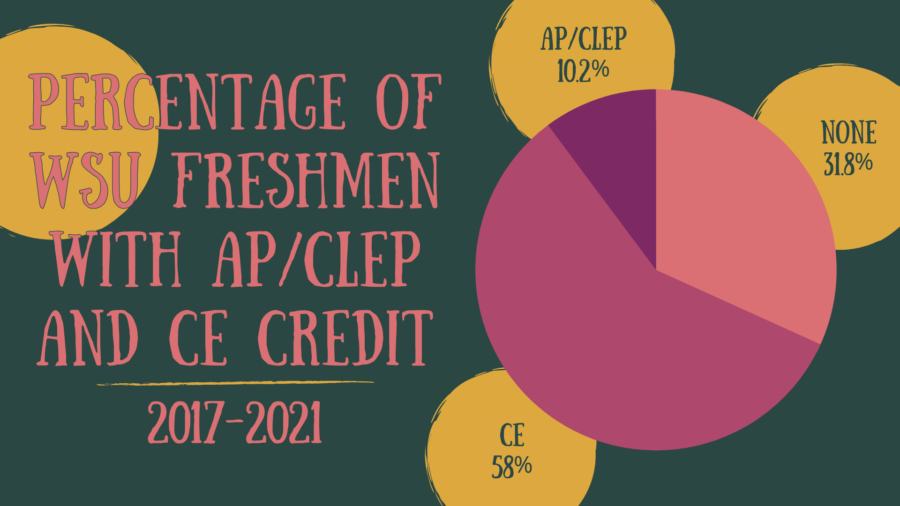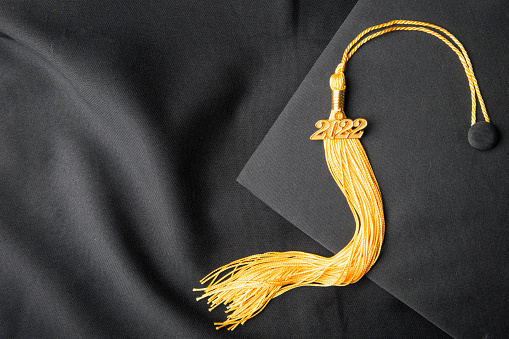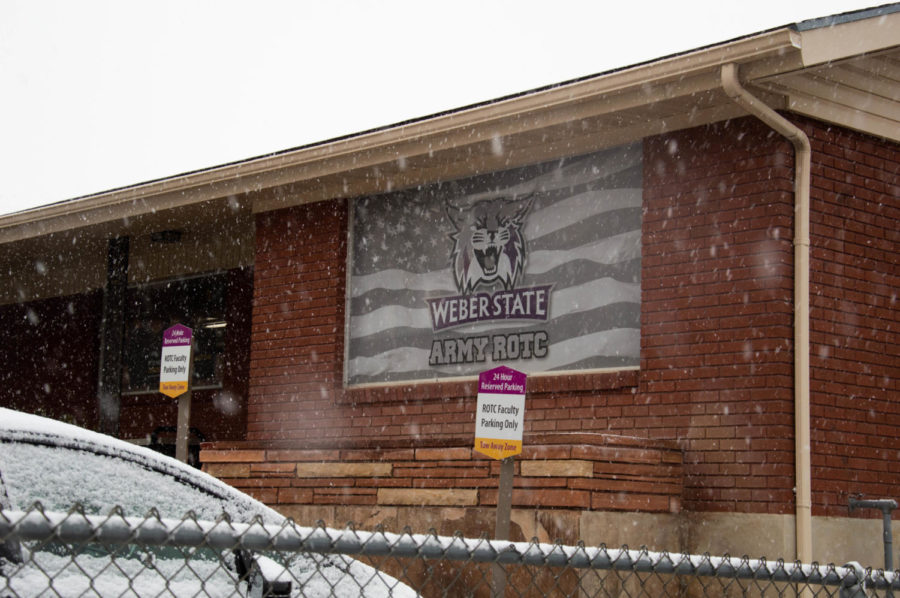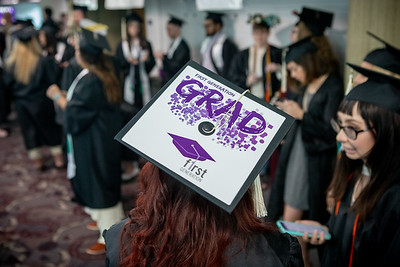Throughout their academic careers, the post-graduation job problem looms over students’ heads. Upon receiving their degrees, students must decide whether to go to graduate school, stay in placeholder jobs until they find ones in their fields or, for students who have the opportunity, delve right into jobs or internships in their career fields.
Winn Stanger, director of Career Services at Weber State University, said students of certain majors enjoy more employment opportunities than others, including students in the health professions.
“It depends on the major,” he said. “There are some majors in which we place nearly 100 percent of our grads. One of them is human resources. Another one of them is the health profession. Engineering has been very strong in the last several years. . . . It has to do with what major and a number of factors, like are they willing to move out of state for a job?”
ShayLynne Clark is graduating from WSU this semester with three degrees: a Bachelor of Science in microbiology, another BS in anthropology, and a Bachelor of Integrated Studies in neuroscience, chemistry and psychology. Though she cannot keep her current job as editor-in-chief of ERGO, WSU’s research journal, once she graduates, she said her degrees qualify her for a number of laboratory jobs.
“The micro degree really gives me opportunity to go into the work force,” she said. “Like, I can graduate and go and work at pretty much any lab I want to with that degree, so I’m planning on applying to a whole bunch of different jobs, lab jobs I can work at while I’m in grad school. . . . That’s the cool thing about the micro department, and the micro degree, is you can graduate and pretty much be guaranteed a job, at least.”
Clark, who said she wants to be a doctor, will be attending graduate school at Utah State University, getting her Master of Social Science degree in the year between applying to medical school and being accepted.
Many graduating students have no plans to leave their current jobs when they get their diplomas. Thomas Dewey, who also plans to attend medical school, is graduating this semester with a degree in athletic therapy. He plans to stay in his current job as a CNA while applying to medical school.
“It’s really good, ‘cause you get a lot of patient exposure . . . kind of a feel for the medical world,” Dewey said of his job. “You can kind of see the hospice side of it, taking care of patients while they’re at the end of their life.”
Joe Belliston, who is graduating in Spanish with a minor in technical sales, and Crystal Lake, who will be getting her associate’s degree with honors at this Spring Commencement, also plan to stay in their current jobs. Belliston, whose father owns Belliston’s Jewelry, will stay on as manager and jewelry designer at Belliston’s, which he plans on doing as a career. He said he wants to go to graduate school at WSU or possibly USU.
Lake has a part-time, hourly job as an enrollment assistant at the WSU West Center. She said she plans to stay with the West Center unless she gets a scholarship for another school. She hasn’t yet decided on a career field, but said she is interested in marine biology, teaching and psychology, among other subjects.
“I’ve only been at Weber for one semester,” she said, “but I did early college through Weber, and I did concurrent enrollment, and I went to BYU and the U of U, and I came back to Weber, and Weber has been my favorite school so far . . . because Weber is more willing to work with you to help you be successful, whereas the other universities are bigger and they don’t really care as much how you’re doing.”
Stanger said the students who currently have some of the lowest employment rates are liberal arts majors, which includes the arts and humanities as well as social and behavioral sciences.
“The downturn in the economy has not been kind to them,” Stanger said. “So liberal arts has been lower than some other majors.”
Laurie Klaass, who is graduating this semester with a degree in creative writing, has had to use networking and freelancing to find work in her field.
“I do independent editing. . . . For the last couple years, each semester I would take on one of the local authors that needed editing work done, ‘cause that’s all I really had time for during the semester . . . I’ve had some really good experiences with that.”
Like most creative writing majors, Klaass said she wants to write, but knows it is rarely a career path to live off of. She said she wants to stay in editing as a career.
“I like all areas of publishing, like even film and cinematography,” she said. “I’m graduating with 200 credit hours, so I’m like a super-super senior, and I took as many classes as I could, like even in playwriting and stuff . . . to make sure that when I went out into the work field, I could do a variety of different things. The thing in editing is there’s so many different areas that you can work, and I think Weber State has a great variety to choose from. I’m not sure that the schools communicate well enough with each other to let the students know the variety.”
Stanger said his advice to liberal arts majors, and students in general, is to get a head start with internships.
“I think what’s important is, particularly in the liberal arts area, is for them to be very proactive throughout their university experience, and be open-minded to opportunities in numerous areas and companies who appreciate the general, broad education that liberal arts gets. So get an internship — for everyone, that’s the most important thing. Seventy percent of companies hire the interns that worked for them, and a recent statistic — 84 percent hired students who had experience in their major. It generally comes out of internships. So it’s just so, so powerful, and particularly for the liberal arts majors.”
Stanger also emphasized, though, that majors which have been locks for employment in the past have also seen downturns.
“Education we used to place 100 percent or nearly that many students, but, you know, budgets in education have been down the last several years. . . . The majors that have the highest placement rates generally are accounting, computer science, information technologies, health professions, the engineering areas . . . government used to be a really good one; it’s not this year. So that’s how it kind of ebbs and flows, you know. It was one of our hottest sectors for three or four years. But it isn’t now.”
Clark, Dewey, Belliston, Lake and Klaass all said they feel WSU has prepared them well for their future careers. Belliston said his classes for his minor in technical sales have been particularly applicable to his job.
“Weber has definitely prepared me,” Clark said. “It’s a school that gives you real-world experience employers are looking for, and I definitely received that through my curriculum.”

















